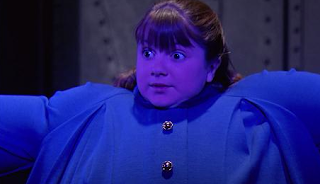Prior to 1987 child sex abuse did not
exist. At least in the minds of the general public, successive
governments and the medical profession, it didn't exist. In reality
of course it was widespread. Also in reality great efforts were made
to ignore it and suppress any mention of it. In his autobiography
“This time next week” the author Leslie Thomas, orphaned during
the war, describes how widespread it was in Barnardo's homes. It was
ignored. When cases come to light now about child sex abuse prior to
1987, featuring various individuals, it is extraordinary how many
people knew what was going on. Also extraordinary were the efforts
made to keep it all brushed under the carpet. This enabled predators
such as Saville to act, unimpeded, for years. And it allowed
institutions such as the catholic church to facilitate the actions of
the numerous paedophiles within it's ranks.
In 1987 all
this changed. In that year
two paediatricians at a Middlesborough hospital, Dr Marietta Higgs,
and Dr Geoffrey Wyatt, reported 121 cases of child sex abuse to
social services over a period of 4 months. Now, in retrospect, it is
clear that the diagnosis was correct in the majority of cases. But at
the time it was something society just didn't want to hear. There was
a huge outcry. The two doctors were widely vilified, especially in
the Daily Mail. Like other whistleblowers before and since they were
turned on and viciously attacked. A government report, published a
year later was a
whitewash. Many abused children were returned to
abusive households.
But the genie was out of the bottle.
Society had now been forced to address an issue it would prefer to
have ignored.
In 1994 Dr Higgs' employers found
themselves in a dilemma. Due to the adverse publicity they felt that
Dr Higgs position in Middlesborough was untenable, and that they
could no longer allow her to work there. However she had actually
done nothing wrong, so could not be dismissed. Their solution was to
move her to the Queen Elizabeth Hospital in Gateshead, to take up a
position as a neonatologist, with no duties related to child sex
abuse. Dr Higgs was well respected within paediatric circles in the
area, and the paediatric consultants in Gateshead were unanimous in
welcoming her.
The rest of the Consultant body at
Gateshead were not so welcoming. There was an immediate outcry among
them, and strong opposition to the appointment expressed. At a bad
tempered meeting of the senior staff committee the Paediatricians
were openly berated and abused, in a shameful and disgusting display
of mob mentality, led by a consultant general surgeon, coincidentally
also called Higgs, though not related to Marietta. All they lacked at
the meeting was pitchforks. A motion was proposed to demand of
management that Ms. Higgs not be allowed to work at Gateshead. In a
secret ballot on the motion only one non paediatric consultant voted with the
paediatricians and against the mob. The appointment went ahead anyway.

Not just the medical profession but the
whole of society owes Marietta Higgs a debt of gratitude that has
never been acknowledged. She forced a society that didn't want to
know to accept that child sex abuse did not just exist, but was
common.. She prised open the unwilling eyes of society to an evil
that it did not want to see. As a result of this the Children's Act
was passed in 1998. Once the problem was acknowledged, only then
could it be addressed, and to this day historic child sex abuse cases
continue to be unearthed, often involving high profile individuals.
Children in the UK, and arguably beyond, are safer today because Drs
Higgs and Wyatt had the courage of their convictions.







